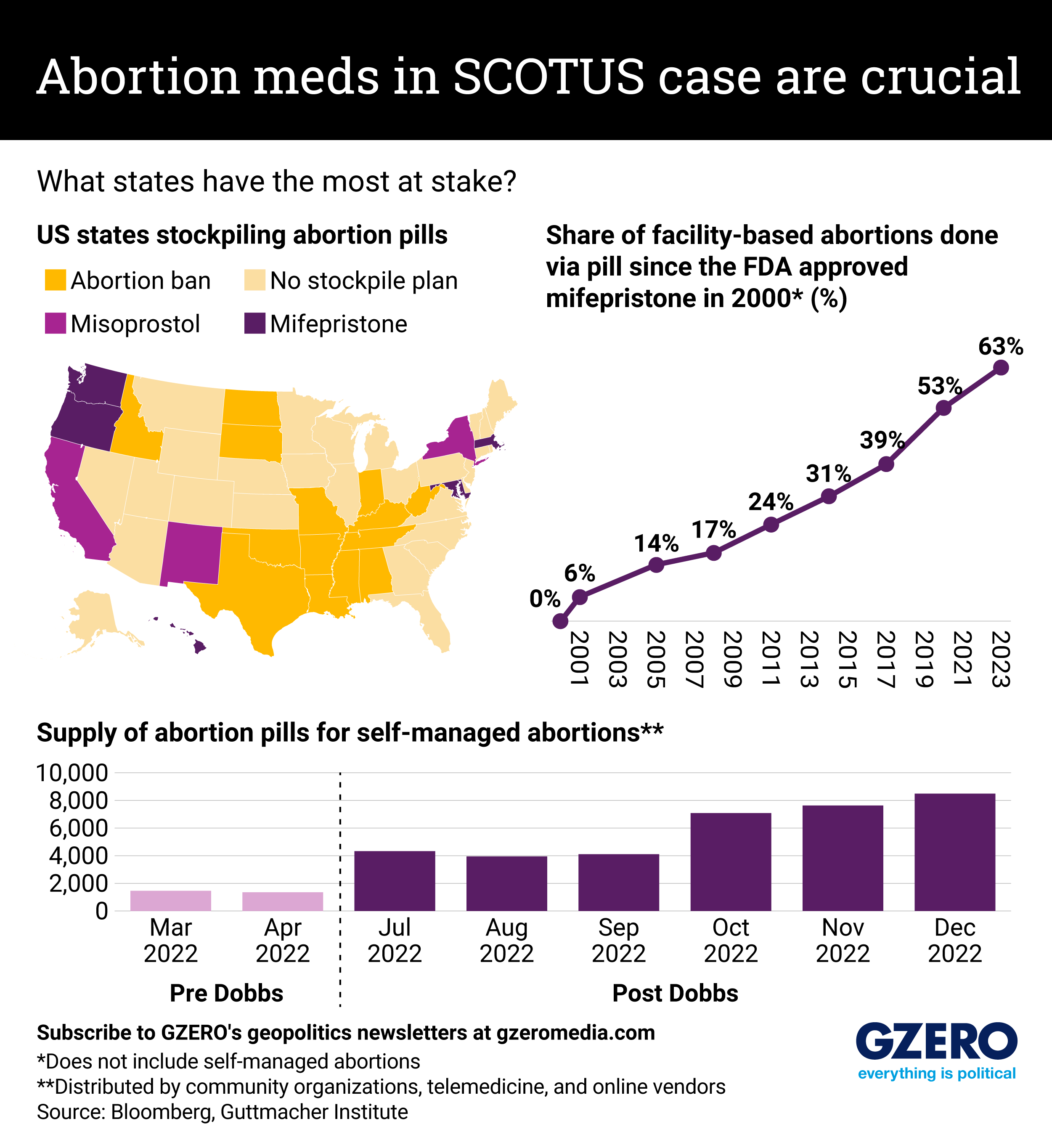March 28, 2024
The US Supreme Court heard arguments on Tuesday on whether access to mifepristone, an oral drug used to terminate a pregnancy, should be restricted. The drug works by blocking progesterone, a hormone that’s necessary for a pregnancy to continue. The case centers on whether changes the FDA made in 2016 and 2021, which broadened access to the drug, should be rolled back.
Since SCOTUS overturned Roe v Wade, which saw many states ban or impose more restrictions on abortion access, a rapidly expanding online and community-based network have been sending the pills through the mail into states with strict bans. Nearly 28,000 additional doses of pills intended for “self-managed” abortions were provided in the six months after the fall of Roe v. Wade — more than quadrupling the average number of abortion pills provided that way per month before the decision and suggesting that many women have turned to medication abortion to circumvent state bans.More For You
- YouTube
In this Quick Take, Ian Bremmer breaks down the growing tensions between the US and Iran, calling it "the next area of potential large-scale conflict where President Trump is interested in changing the facts on the ground."
Most Popular
A flood victim stands at her flooded home after weeks of heavy rainfall in Boane District, Maputo, Mozambique, January 19, 2026.
REUTERS/Amilton Neves/File Photo
392,000: The estimated number of people displaced across Mozambique by recent rain-induced floods. Severe flooding in the southern African nation, as well as in South Africa and Zimbabwe, has killed over 100 people.
© 2025 GZERO Media. All Rights Reserved | A Eurasia Group media company.
